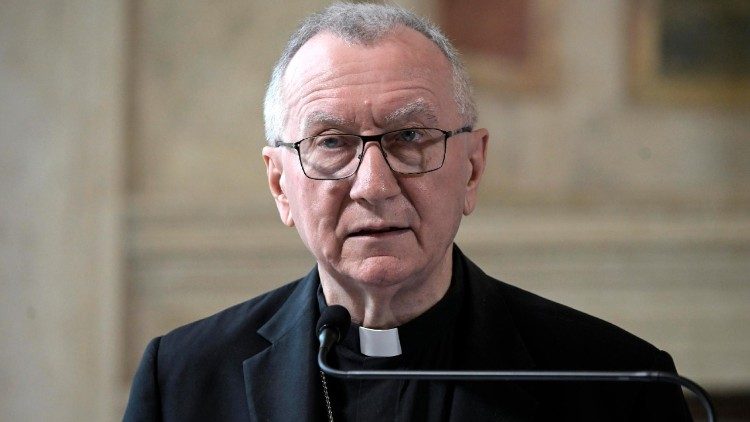The Vatican Secretary of State, Cardinal Pietro Parolin, has cautioned against labelling Nigeria’s insecurity as a genocide against Christians, insisting that Muslims are equally victims of the country’s worsening violence.
Speaking in Rome during the presentation of the 2025 World Report on Religious Freedom by Aid to the Church in Need (ACN), Parolin stressed that the killings across Nigeria stem largely from social and economic conflicts, particularly land disputes between farmers and herders in the North-Central region.
“It is not a religious conflict,” Parolin declared. “Much of the violence stems from social causes such as land disputes between herders and farmers.
“We should also recognise that many Muslims in Nigeria are themselves victims of this same intolerance.
“These extremist groups make no distinctions in pursuing their goals; they attack anyone they see as an opponent.”
The Cardinal’s remarks come amid renewed debate over alleged religious genocide in Nigeria, a narrative that gained traction following Vice President Kashim Shettima’s address at the United Nations General Assembly last month.
Shettima had called for a two-state solution in the Gaza conflict and urged adherence to international law, prompting some Western commentators to draw parallels between Gaza and Nigeria.
One such voice, Eric Prince, founder of a U.S. private security company, had controversially urged global Christian leaders to fund a “private Christian army” to defend Nigeria’s Christian population — a suggestion the Vatican has now strongly rejected
At the same Vatican event, Bishop Matthew Hassan Kukah, the Catholic Bishop of Sokoto Diocese, also warned against framing Nigeria’s security crisis as religious persecution.
Kukah urged the international community not to classify Nigeria as a “Country of Particular Concern (CPC),” arguing that such a move would undermine efforts to promote interfaith dialogue and national reconciliation.
“We are not dealing with people going around killing simply because I am a Christian,” Kukah said.
“I live and work in Sokoto, right in the womb of Islam, where collaboration between Christians and Muslims remains possible. Our lives should be defined by a better narrative.”
However, the cleric admitted that the failure of government to protect citizens had created conditions resembling genocide in some communities.
“Nigerians are dying unacceptable deaths across the country — not only because of religion but also ethnicity,” he lamented. “We are in the cusp of a weak state that lacks the capacity to stop the descent into anarchy.”
Kukah described the eight years under former President Muhammadu Buhari as “the worst phase in interfaith relations,” accusing the administration of policies that alienated Christians and emboldened extremist groups.
> “Under Buhari, it was more important to be a northern Muslim than to be a citizen of Nigeria,” he asserted.
He, however, commended President Bola Tinubu’s administration for showing inclusiveness through appointments that reflect religious balance and national unity.
“Though both the President and Vice President are Muslims, Christians have not felt alienated. Appointments like the Chief of Defence Staff, the DSS Director, and the INEC Chairman being Christians are confidence-building measures,” Kukah noted
Citing the 2025 Global Terrorism Index Report, which shows a 37 percent drop in terrorist attacks in Nigeria last year, Kukah urged the government to enforce the secular provisions of the Constitution, especially regarding the application of Sharia law in some northern states.
“The President should approach the courts to declare the adoption of Sharia law unconstitutional,” he said. “The secular state anticipated by the Constitution must be upheld.”
The ACN 2025 report reveals that over 5.4 billion people worldwide live under regimes where religious freedom is restricted, driven by authoritarianism, religious extremism, and organised crime.
Both the Vatican and Nigerian clerics at the event emphasised that Nigeria’s violence should be addressed through justice, equity, and inclusive governance, not by deepening religious divides.
Do you want to share a story with us? Do you want to advertise with us? Do you need publicity for a product, service, or event? Contact us on WhatsApp +2348183319097 Email: platformtimes@gmail.com
We are committed to impactful investigative journalism for human interest and social justice. Your donation will help us tell more stories. Kindly donate any amount HERE




